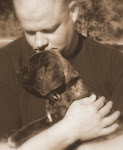The Greek word for laity is laos, meaning the people. The Greek word for clergy is kleros, meaning heritage or inheritance. Nowhere in the New Testament are either of the words laity or clergy used. However, the Greek counterparts are fairly prevalent, and from what I've seen and heard, never identify different classes of Christians-those who do ministry and those to whom it's done.
To make an ironic point, look at this text in 1 Peter 5:3 where Peter is writing to elders.
Neither as being lords over God's heritage, but being ensamples to the flock. KJV
The word heritage used in this text has for it's Greek counterpart, kleros, from which we get clergy. Of course, in this text, heritage is referring to followers of Jesus who have a heritage and hope in Him and these people are, as is stated later in the text, also considered the flock. So elders (leaders) are called not to lord over the kleros, heritage, or simply put-the flock. The clergy, if you will, are the people of God.
Now, clergy was a class distinction that came later as secular ways of government began to infiltrate the church. I just find it curious that a word that was used to refer to God's people as a whole, came to refer to an upper class, professional, religious sect very distinct from the common people.
Tuesday, February 19, 2008
Subscribe to:
Post Comments (Atom)


No comments:
Post a Comment